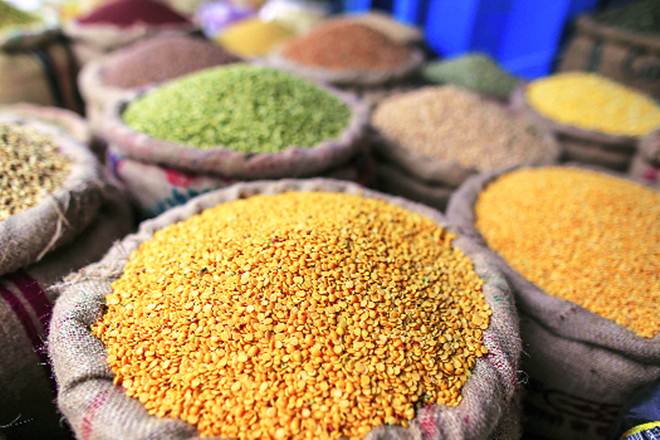Bhubaneswar: The retail prices of some of the pulses in the state have skyrocketed in the past few weeks, but what has raised the concern of the middle class consumer is the price of black gram (tur dal).
According to traders and retailers in the city, the hefty rise in the selling price of tur dal is a matter of concern. Small traders have admitted that within a week the price of tur dal has gone up from `70 per kg to `120 per kg. Even the rise in price of moong dal (green gram) by over `10 per
kilogram has stupefied the common consumers.
Shopkeepers claim the overall prices of all categories of pulses have escalated in the past one month, but the hefty hike in tur dal defies all logic at this part of the year.
“In the past month, the price of pulses has been rising at regular intervals. While moong dal price has seen an increase of `10 in the last one month, tur dal price has shot up to `120 from `70 just within a week” said Debasis Nayak, a grocery shop owner in Palasuni. The traders claim that poor production due to heavy rain, delayed harvest and monopoly of corporate houses in the market have led to price rise in the city.
“The price rise could be attributed to heavy rainfall in the neighbouring states from where we import pulses. There has been considerable delay in the harvest of pulses. These are the natural factors contributing to the prevailing price mechanism in the state,” said Sudhakar Panda, general secretary, Odisha Byabasayee Mahasangh.
Panda also said the monopoly of corporate players has impacted in the price mechanism by disrupting the market equilibrium. Their agents are procuring pulses in bulk from the field.
“With the patronage of the state government, national retail players are able to buy mammoth quantum of pulses and hoard those in their godowns. The small traders suffer in silence due to this,” he said and attributed this to the soaring price of pulses in the city.
The Mahasangh has now decided to meet its New Delhi counterparts to discuss the issue and resort to an agitation if a consensus emerges.
The middle class consumer, however, is at the receiving end as prices of all essential commodities go up proportionately without providing him any relief.
“There have been a sharp rise in price of several essential commodities including pulses, vegetables and sugar among others. It has forced us to shell more from our pockets affecting our monthly expenses,” said Shobha Mohanty, a resident of Jharpada.
The state imports pulses from Andhra Pradesh, Chhattisgarh, Karnataka and Maharashtra. The State Food Supplies Secretary, however, did not respond when OP reached out for comments.
